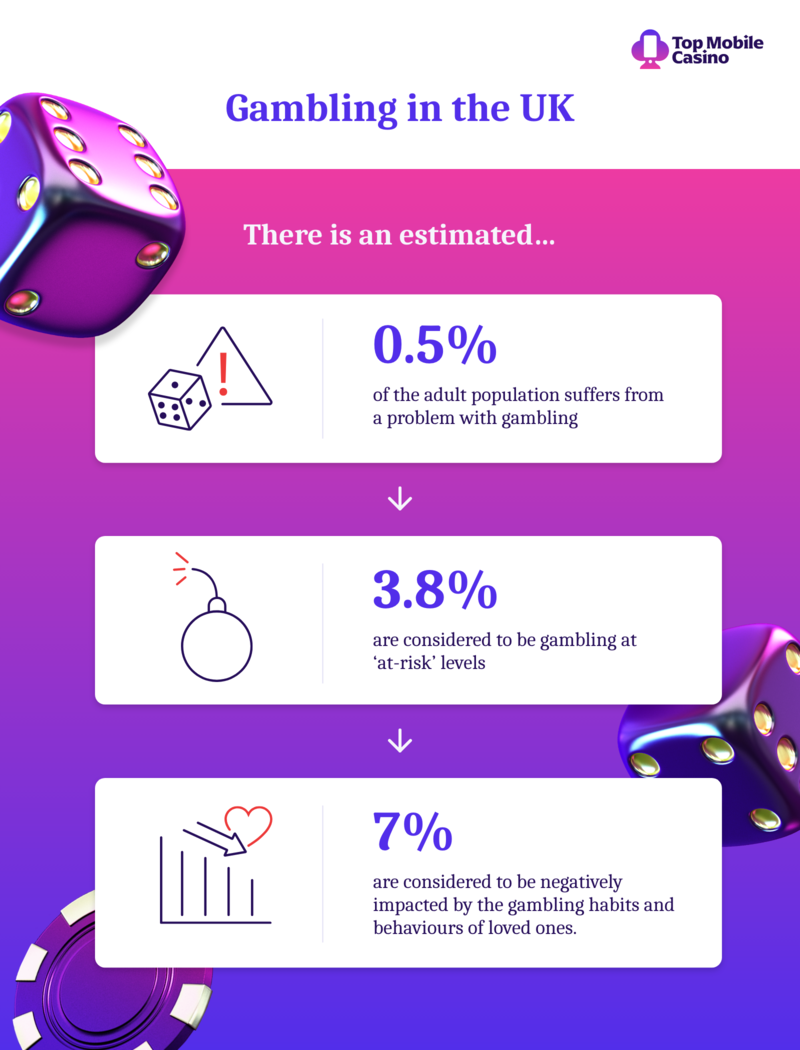Major Changes to UK Gambling Laws Announced to Tackle Addiction and Vulnerable Users

Gambling laws in the UK were once considered fairly relaxed, but thanks to recent efforts, the tide is turning. In the UK, the primary legislation responsible for regulating online and land-based UK gambling is the Gambling Act of 2005. This legislation is responsible for ensuring that gambling is not linked with crime in any way, for ensuring gambling is conducted in a fair and open way, and to protect children and vulnerable people from being exploited or harmed by gambling.
In the USA for example, gambling is a great deal more free-form, as different states have different laws. Gambling in Nevada for example, is prominent thanks to Las Vegas, yet in states like Utah and Hawaii, it is banned entirely. The UK gambling laws may be more lenient than in other parts of Europe, but they are still deemed safe and effective and will be even more so, thanks to the new laws being implemented. Recently, UK gambling laws recently underwent a bit of a shakeup, leaving many users confused as to what these changes were, and what they might mean for the gambling industry here in the UK.
Every single day, thousands upon thousands of people enjoy gambling in some form or another. Whether it’s a cheeky bet on the Grand National, a football accumulator every Saturday, or even something as simple as online slots, or buying a lottery ticket. The fact that we can now gamble virtually anywhere, at any time, thanks to our smart phones, has also helped drive up the amount of people now gambling in the UK.
Gambling Addiction Rates in the UK
Though these new laws and regulations are designed for a positive outcome, we still need to understand how they’ll affect the gambling industry, and how they’ll help those most at risk.

Vulnerable user demographics
According to the GC, individuals who are experiencing impaired cognitive function, poor mental health, poor physical health, has an addiction, are suffering side effects from medication, has a learning disability or from a brain injury can be classed as vulnerable. On top of that, young adults aged 25 and under, are more susceptible to gambling distress, with problem gambling rates of 8.5% for online slots, mobile bingo, and casinos.
Expected outcomes of the changes on addiction rates and user protection
It is hoped that the new changes to the gambling laws in the UK will help to reduce the amount of people negatively impacted by gambling. The changes were designed to tackle and prevent gambling addiction.
At the start of March 2023, the GC revealed that problem gambling rates amongst UK adults had fallen by 0.2%. It is their hope that the new rules and regulations will help bring these numbers down further.
Potential effects on the gambling industry
It isn’t just gamblers that will be affected by the new laws, so too will gambling operators. Gambling companies will need to pay more via the statutory gambling operator levy, and will also need to ensure that they adhere to the rules. On top of that, many will need to re-think their marketing and advertising strategies going forwards.
Of course, gambling operators will have to comply with these changes, or risk the prospect of hefty fines and even legal action. Some are predicting a fall in profits, whereas others welcome the news and believe they may see increased profits brought on by an increase in people betting safely.
Key Changes to UK Gambling Laws

Whereas the majority of gamblers in the UK do so with no issue whatsoever, government officials are concerned about the amount of people suffering from gambling addiction. Not only that, but because online gambling is not as heavily regulated, there is also a concern that vulnerable users may be at risk of problem gambling or even addiction. Here’s a look at what changes have been made, and what they might mean for the industry.
As previously mentioned, in a bid to tackle gambling addiction and the plethora of issues it can lead to, not to mention the fact that keeping vulnerable users safe from the negative aspects of gambling is also so important. Both gamblers and those working in the gambling industry need to be aware of what these changes are, and how it may affect them.
1. New restrictions on advertising and promotions
One of the biggest changes to the gambling industry in the UK is stricter advertising and promotion laws. The Committee for Advertising Practice (CAP) recently announced a series of tough new rules designed to safeguard young people and vulnerable audiences. The new rules state that both lottery and gambling ads must not, “be likely to be of strong appeal to children or young persons, especially by reflecting or being associated with young culture.”
This means that online casinos and bookmakers cannot use “influencers” such as reality TV stars, famous athletes, footballers, YouTubers, or persons with a large online following. They must also not use references to video games popular with under 18s, such as Fortnite and Rocket League.
2. Enhanced levels of affordability and responsible gambling checks
Another change which has been implemented as part of the shakeup is greater affordability and responsible gambling checks. These checks are designed to prevent people from spending more money on gambling than they can afford to lose.
For example, with moderate levels of spending, governments will implement financial risk checks after a player sees a £125 net loss after one month of gambling, or £500 after one year. For higher levels of spending however, these checks will be implemented after a player sees a net loss of £1,000 or more a day, or if they lose £2,000 or more over the course of 90 days.
3. Increased funding for research, education, and treatment of problem gambling
Make no mistake about it, gambling addiction, and problem gambling in general; can destroy lives. It can tear families apart, lead to financial problems, lead to crime to fund the habit, and cause a wide range of mental health issues, and even potential suicides when people are overwhelmed with the consequences of their addiction.
Because of this, a statutory gambling operator levy has been introduced to make sure that operators help fund research services looking into problem gambling and addiction, as well as to help fund treatment for these issues. Right now, this levy is not mandated and there are concerns that not all operators are paying their fair share.
What Are the New Measures?
With the new measures implemented as part of new UK gambling laws, it is hoped that the amount of vulnerable people, and people affected by gambling addiction and problem gambling, will be hugely reduced over the course of 2023 and beyond.
1. Statutory gambling operator levy
As we just looked at briefly, because this levy is not mandated, operators simply are not paying their fair share. As a result, research, education, and treatment facilities and problems designed to tackle problem gambling have been massively underfunded for far too long.
Gambling companies will pay a new levy, with all proceeds going towards funding for treatment, education, and research into problem gambling, through the National Health Service (NHS). The rate will take numerous factors into consideration, such as the business’ operating costs, its size, profits, and problem gambling rates.
2. New online stake limits
Another change to the gambling laws in the UK is a change to online stake limits. For players playing online slots, the default maximum stake will be between £2 and £15 per spin. This new stake limit (subject to consultation) has been implemented as a way of helping to mitigate high value losses for players using online slots games.
This new law has been implemented to help online slots more closely resemble in-person slots machines found in pubs, casinos, amusement arcades, and so on. Casinos for example, have £5 limits, whereas pubs and amusement arcades have a limit of £2.
3. More extensive player protection checks
One of the more prominently reported changes to gambling laws here in the UK is the fact that more extensive player protection checks will be carried out. In a move to help protect customers at risk of gambling addiction and the ill-effects of problem gambling, betting companies will be required, by law, to carry out a series of player protection checks on gamblers who are spending the most money with them.
The checks will be carried out immediately and will not interfere with the player’s gaming experience unless there is a high risk of financial harm. If players have previously declared bankruptcy for example, or if they have accumulated a lot of debts to fund their gambling, then they will intervene. Roughly 80% of gamblers will not need to undergo checks. When these checks do take place, they will be carried out against background information which is already available.
4. New Gambling Commission powers
In an effort to prevent and block illegal black market and underground gambling companies from operating within the UK, the Gambling Commission (GC) will be granted new powers through ISPs and court orders. It is proposed that the fee structure for the GC should be reformed in such a way that it provides them with more flexibility to tackle any emerging issues or risks within the industry.
5. Restricting bonus offers
One of the main marketing strategies implemented by online casinos and betting companies, was the offering of generous welcome bonuses and other bonus offers. It has been found however, that these types of bonuses and promotions can cause people to spend more than they initially intended. Now the GC will look closer at how bonus offers are presented so as to prevent them from promoting problem gambling and causing people to spend more than they can afford.
6. Horseracing levy
Finally, the other primary change to UK gambling laws is that the current horseracing betting levy remains in place and properly funded into the future. While these new laws and changes will barely affect the horseracing industry, ensuring that the current levy in place remains in place, and properly funded in the future, is very important.
Get Help for a Gambling Addiction

Gambling addiction is more common than people realise. The good news however, is that help is available. If you or somebody you know may be suffering from a gambling addiction, or the ill-effects of problem gambling there are places that provide support.
Call the GamCare-run National Gambling Helpline on 0808 8020 133. Alternatively, you may start a live online 1-2-1 chat with an employee there. Other forms of help include, CBT (Cognitive Behavioural Therapy), the Samaritans, the National Problem Gambling Clinic, and the NHS.

